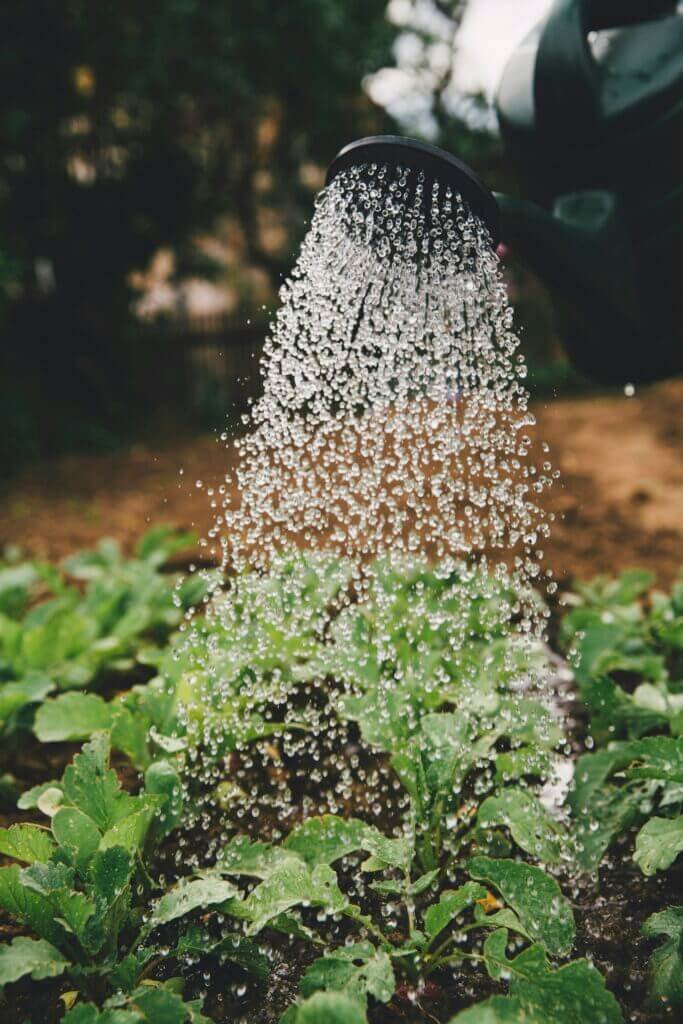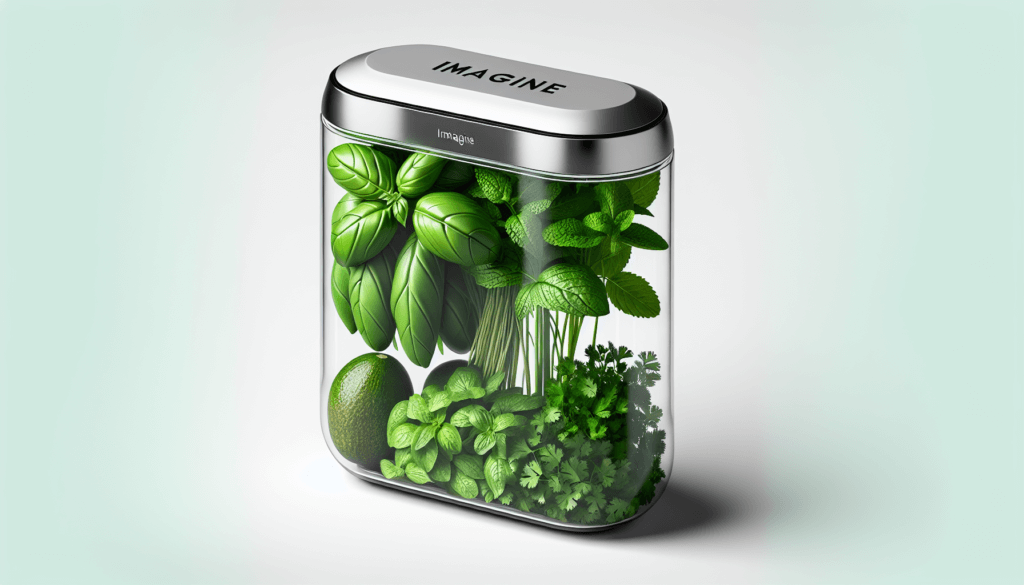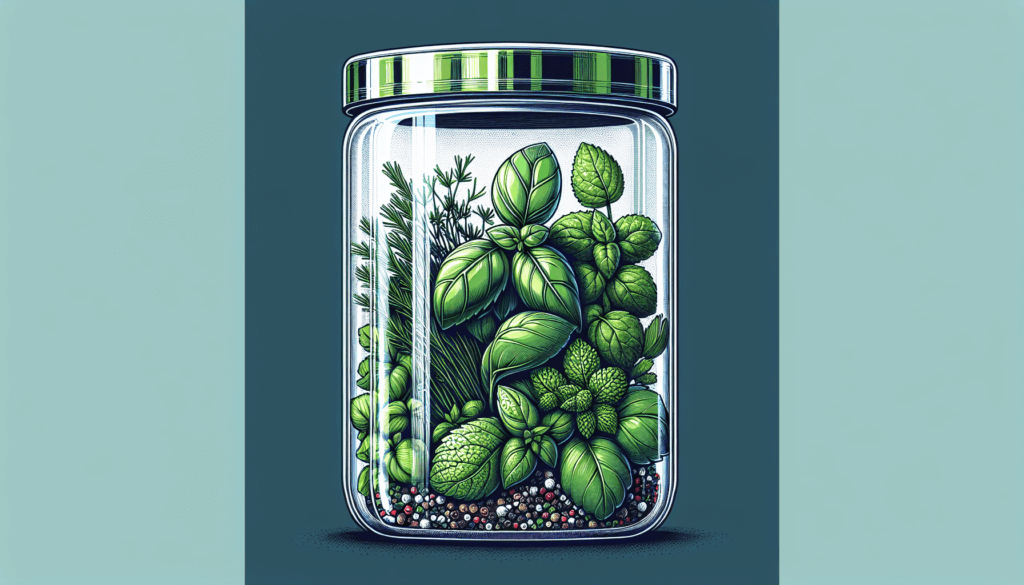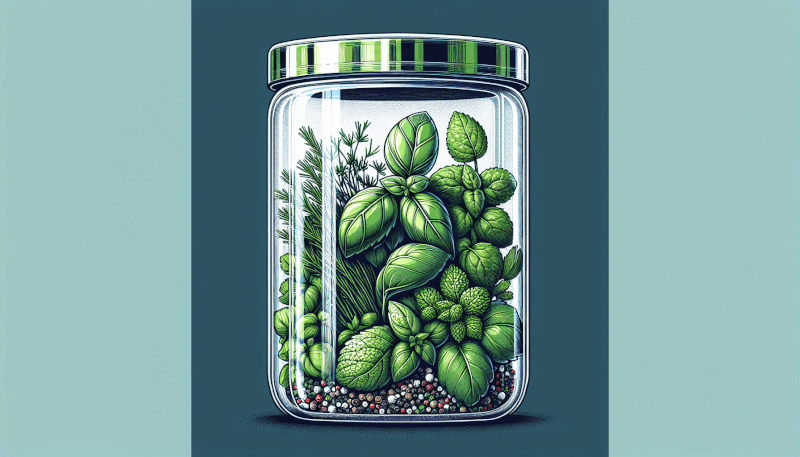You love adding fresh herbs to your meals, but you often find that they wilt and lose their flavor before you can use them all. Don’t worry, there’s a solution! In this article, you will discover the best way to store fresh herbs to keep them fresh and flavorful for longer. Say goodbye to wasted herbs and hello to vibrant and aromatic dishes every time.
Choosing the Right Herbs
When it comes to selecting herbs for storage, there are a few factors to consider. One important aspect is the shelf life of the herbs. Certain herbs, such as rosemary and thyme, have a longer shelf life compared to more delicate herbs like basil and cilantro. This means that if you’re looking for herbs that will last longer in storage, you may want to opt for those with a longer shelf life.
In addition to shelf life, it’s crucial to select fresh and healthy herbs for storage. Look for herbs that have vibrant colors and firm leaves. Avoid herbs that are wilted, discolored, or have any signs of mold or bruising. By choosing fresh and healthy herbs, you’ll ensure that your stored herbs will retain their flavors and aromas.
Another aspect to consider is whether to opt for organic herbs. Organic herbs are free from synthetic pesticides and are grown using sustainable farming practices. Choosing organic herbs can provide you with peace of mind knowing that you’re storing herbs that are free from harmful chemicals.
Lastly, when selecting herbs for storage, consider the frequency of use. If you regularly use a particular herb in your cooking, it may be beneficial to store a larger quantity. On the other hand, if you only occasionally use a certain herb, you may prefer to store a smaller amount to avoid wastage.

Harvesting and Cleaning
When it comes to harvesting herbs for storage, timing is crucial. Harvest your herbs at the right time to ensure that they are at their peak flavor and aroma. This typically means harvesting in the morning after the dew has dried, but before the sun is too hot. By harvesting at the right time, you’ll maximize the freshness and potency of your herbs.
Before storing your herbs, it’s essential to clean them properly. Gently remove any dirt and debris from the leaves by rinsing them under cool water. Be careful not to be too rough, as delicate herbs can bruise easily. Pat them dry with a clean towel or use a salad spinner to remove excess moisture.
For particularly delicate herbs like dill or parsley, it’s essential to handle them with care. These herbs have fragile leaves and stems, so avoid squeezing or pressing down on them too hard. Instead, delicately hold the stems and use a gentle touch when cleaning or handling them.
To ensure that your herbs remain in optimal condition during storage, it’s essential to dry excess moisture. Excess moisture can cause herbs to wilt or develop mold. After cleaning your herbs, give them some time to air dry before transferring them to storage containers or applying other storage methods.

Methods of Storage
When it comes to storing fresh herbs, there are several methods you can choose from. Each method offers its own benefits and is suitable for different types of herbs. Let’s explore the most common storage methods and how to implement them effectively.
Refrigerator Storage
Refrigerator storage is a popular choice for preserving the freshness of herbs. To store herbs in the refrigerator, it’s crucial to use airtight containers. Airtight containers will help maintain the herbs’ natural aroma and prevent them from absorbing other odors from the refrigerator.
To keep your herbs fresh for longer, wrap them in slightly damp paper towels before placing them in the airtight containers. This moisture will help keep the herbs hydrated and prevent them from drying out.
When storing herbs in the refrigerator, it’s recommended to place them in the crisper drawer. The crisper drawer provides a slightly more humid environment, which can help extend the shelf life of your herbs.
Remember to rotate your herbs regularly, especially if you have multiple containers. This will ensure that all the herbs have equal exposure to the cooling effect and help maintain their freshness.
Freezer Storage
Freezer storage is an excellent option if you’re looking to store herbs for an extended period. However, it’s essential to take a few extra steps to ensure the best results.
Before storing your herbs in the freezer, it’s beneficial to pre-freeze them for a few hours. This step helps prevent the herbs from clumping together and makes it easier to portion them when using later.
To store herbs in the freezer, place them in labeled freezer bags. Labeling the bags will make it easier to identify the herbs when you need them. Additionally, consider blanching the herbs before freezing. Blanching helps preserve the color, flavor, and texture of the herbs.
When using frozen herbs, it’s best to thaw them carefully before adding them to your recipes. Thawing them naturally at room temperature for a few minutes or placing them in the refrigerator overnight will help preserve their flavors.
Water Storage
Water storage is an excellent option for storing herbs that tend to wilt quickly, such as basil or mint. To store herbs in water, remove any lower leaves that may come in contact with the water. Fill a glass or jar with a small amount of water and place the herb stems in it, making sure the leaves are not submerged.
To maintain the freshness of the herbs, cover the glass or jar with a plastic bag. This will create a mini greenhouse effect, trapping moisture and preventing the herbs from drying out.
Remember to change the water regularly, ideally every couple of days, to prevent bacteria or mold growth. By keeping the water fresh, you’ll help extend the longevity of your herbs.
Oil Storage
If you’re looking to preserve herbs with oil, this storage method can be a great option. To store herbs in oil, start by finely chopping the herbs. This will help release their flavors and allow them to infuse into the oil more effectively.
Combine the chopped herbs with the oil of your choice, such as olive oil or vegetable oil. The oil will help preserve the herbs and prevent them from spoiling. One handy tip is to pour the herb-infused oil into ice cube trays for convenient portioning. Once frozen, transfer the herb cubes to an airtight container for long-term storage.

Avoiding Common Mistakes
When it comes to storing herbs, there are a few common mistakes to avoid. Being mindful of these mistakes will help ensure that your herbs stay fresh and flavorful for as long as possible.
One common mistake is storing herbs near ethylene-producing fruits, such as apples or bananas. Ethylene is a natural gas that accelerates the ripening process. Storing herbs in close proximity to ethylene-producing fruits can cause them to wilt or spoil prematurely.
Another mistake is not properly drying excess moisture from your herbs before storing them. Excess moisture can lead to wilting or mold growth. Take the time to air dry your herbs or use a salad spinner to remove excess moisture before storing them.
It’s also important not to store different herbs together. Each herb has its own distinct flavor and aroma, and by storing them together, they can cross-contaminate and lose their individual characteristics.
Lastly, freezing herbs without blanching can result in a loss of flavor, texture, and color. Blanching helps preserve the herbs’ quality and enhances their longevity in the freezer.
By avoiding these common mistakes, you can ensure that your stored herbs maintain their freshness and flavors for an extended period.

Tips for Using Stored Herbs
Now that you have successfully stored your herbs, it’s time to put them to good use. Here are some helpful tips for using your stored herbs effectively.
When using stored herbs in recipes, it’s essential to adjust the quantities. The potency of dried or frozen herbs can vary from fresh herbs, so it’s best to start with a smaller amount and gradually adjust to taste.
To maximize the flavors and aromas of your herbs, add them towards the end of the cooking process. This will ensure that they retain their freshness and don’t become overcooked or lose their flavor.
One great advantage of using frozen herbs is that you can add them directly to soups and stews without thawing. The heat from the cooking process will naturally thaw the herbs and infuse their flavors into the dish.
If you prefer to thaw your herbs before using them, do so naturally at room temperature or in the refrigerator. Thawing them slowly will help preserve their flavors and prevent them from becoming too watery.
By following these tips, you can make the most out of your stored herbs and enhance the taste of your dishes.

Reviving Wilted Herbs
Even with proper storage, it’s possible for herbs to wilt or lose their freshness over time. If you find yourself with wilted herbs, don’t worry. There are ways to revive them and extend their usability.
To revive wilted herbs, start by trimming the stems. Remove any discolored or bruised leaves and cut off the ends of the stems. This will help improve the appearance and vitality of the herbs.
Next, place the herbs in a glass of cold water for a few minutes. The cool water will help rehydrate the herbs and restore their crispness. After soaking, gently pat the herbs dry with a clean towel or use a salad spinner to remove excess moisture.
To ensure that the revived herbs stay fresh for as long as possible, store them in the refrigerator. Placing them in an airtight container or wrapping them in a damp paper towel will help maintain their moisture and prevent wilting.
It’s best to use the revived herbs within a day or two to enjoy their optimal flavor and quality. Incorporate them into your favorite dishes or garnish them onto salads for a burst of freshness.
In conclusion, by choosing the right herbs, harvesting and cleaning them properly, and utilizing the appropriate storage methods, you can ensure that your herbs stay fresh for longer. Avoid common mistakes, follow helpful tips for using stored herbs, and revive wilted herbs when necessary. With these practices, you’ll be able to enjoy the flavors and aromas of fresh herbs in your cooking, enhancing every dish with a touch of natural goodness.


